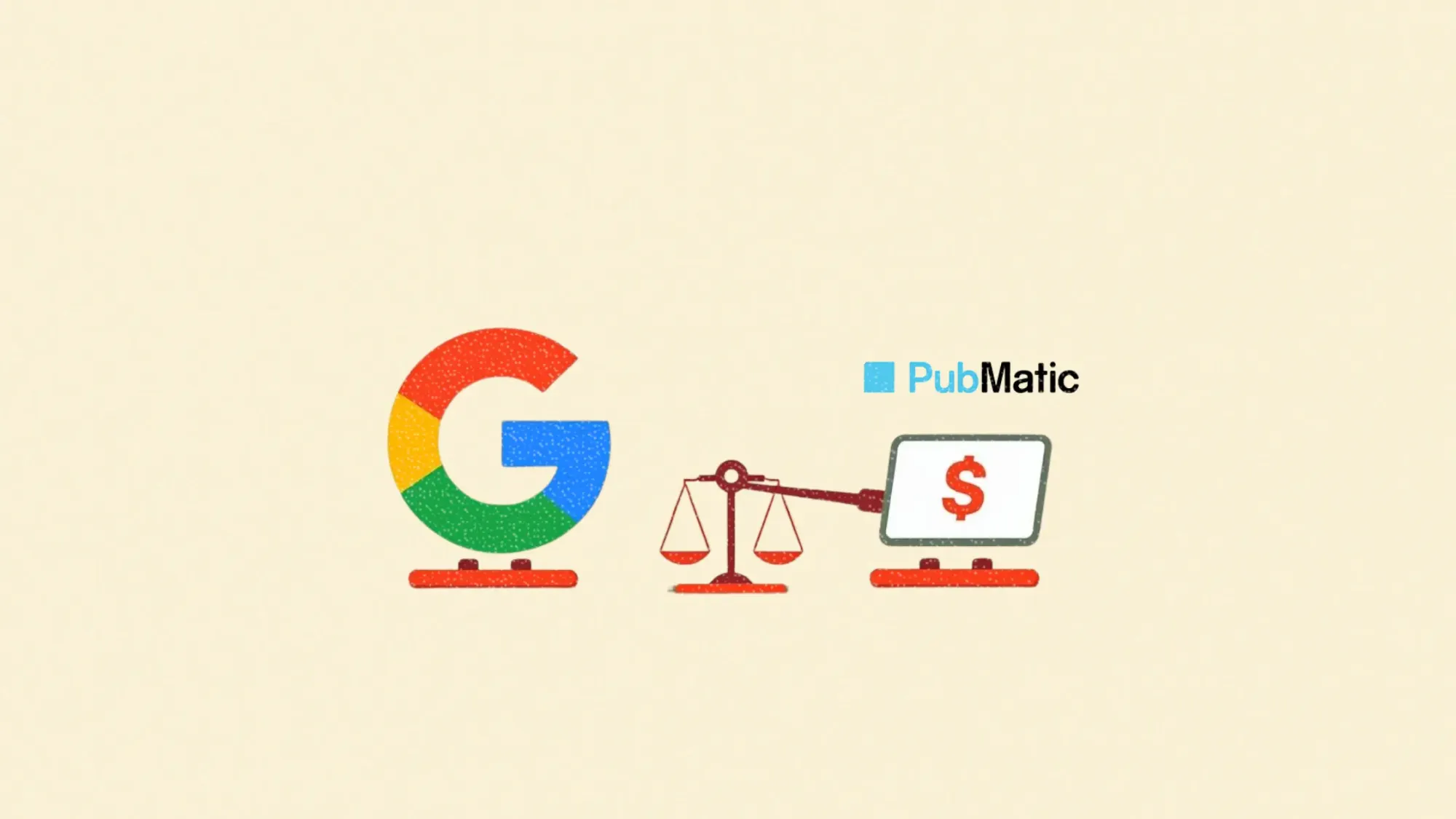
Independent adtech company PubMatic is taking Google to court, accusing the tech giant of monopolistic behavior that it claims has stifled fair competition in the digital advertising market.
The lawsuit, filed in the US District Court for the Eastern District of Virginia, aims to hold Google accountable for anticompetitive practices that PubMatic says have harmed both its business and the broader open-web ad ecosystem.
This article unpacks the legal battle, how it fits into the bigger picture of tech regulation, and what marketers should expect if the industry shifts.
Short on time?
Here is a table of content for quick access:

What happened?
PubMatic’s legal action follows an April 2025 ruling by the same court, which found Google had “willfully engaged in a series of anticompetitive acts” to dominate the publisher ad server and ad exchange markets for open-web display ads.
In its complaint, PubMatic claims that Google’s dominance:
- Inflated costs for advertisers
- Reduced publisher revenue
- Decreased transparency
- Undermined content diversity
“For nearly two decades, PubMatic has delivered sustainable innovation and efficiency in digital advertising, empowering publishers to maximize their revenue and deliver quality content to users worldwide,” said Rajeev Goel, PubMatic’s co-founder and CEO.
“Google’s systematic abuse of its vast resources and immense power has harmed our business and distorted a marketplace that should have rewarded innovation and fueled transparency and competition. Instead, anticompetitive practices limited monetization for publishers, raised costs for advertisers, and ultimately reduced choice for consumers.” Goel added.
Google, for its part, dismissed the claims.
The bigger picture: Antitrust pressure is rising
This case does not exist in a vacuum. It lands during a broader crackdown on Big Tech power in digital advertising and social media.
Meta, for example, is also facing its own courtroom drama. The company is set to go to trial over an FTC-led antitrust suit targeting its acquisitions of Instagram and WhatsApp. The case claims those deals allowed Meta to maintain its stronghold on the social media ad market, with Instagram alone contributing 30 to 40 percent of the company’s total ad revenue, according to past media reports.
Across the board, regulators are growing more aggressive. Google has already been hit with lawsuits from the US Department of Justice and several states over its ad business practices. The PubMatic case could add further legal weight to claims that Google’s integrated ad stack is inherently anti-competitive.
What marketers should know
Whether or not PubMatic wins, this case could lead to ripple effects across the ad industry. Here are the key takeaways for marketers and media planners.
1. The ad stack could get broken up
If regulators or courts force Google to separate parts of its ad tech business, marketers could see major changes in how programmatic campaigns are bought and sold. This could lead to more competition and choice across ad platforms.
2. Pricing and transparency may improve
A key part of PubMatic’s complaint is the lack of visibility into how ad dollars are spent. If new rules or structural changes come into play, marketers could gain better insights into fee structures, auction dynamics, and media quality.
3. It is time to diversify platforms
Heavy reliance on a single provider like Google increases risk. Brands should explore alternative demand-side platforms (DSPs) and ad servers, especially those that focus on transparency and publisher control.
4. Legal pressure could accelerate reform
Even if this lawsuit doesn’t succeed, continued legal scrutiny may push Google and others to preemptively change how their ad tools operate. Marketers who stay informed will be better positioned to adapt.
PubMatic’s case against Google is more than a legal grievance. It’s part of a growing industry backlash against tech consolidation in digital advertising. For marketers, this could mark the beginning of a more open and competitive programmatic landscape. Those who prepare now by diversifying vendors and demanding transparency will be in a stronger position if that future arrives.



Leave a Reply